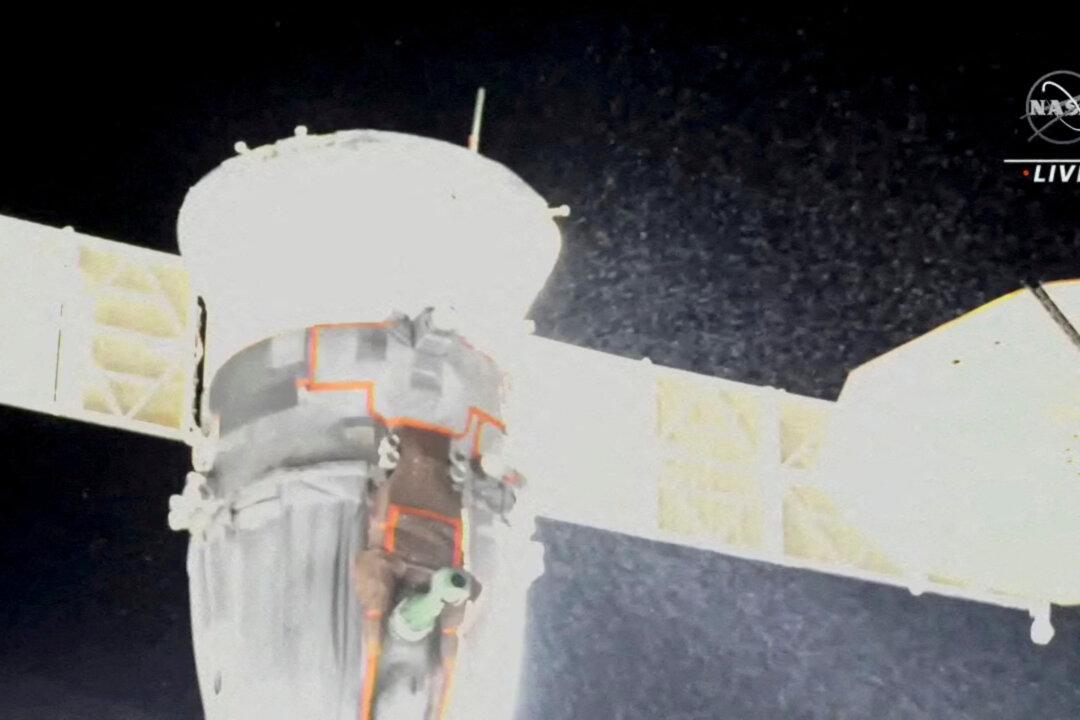Russia’s space agency Roscosmos announced new contingency plans on Saturday for the three crew of a damaged capsule docked to the International Space Station, saying the U.S. member of the trio would return to Earth in a separate SpaceX vessel if they needed to evacuate in the next few weeks.
The Soyuz MS-22 capsule, which serves as a lifeboat for the crew, sprang a coolant leak last month after it was struck by a micrometeoroid - a small particle of space rock - which made a tiny puncture and caused the temperature inside to rise.





